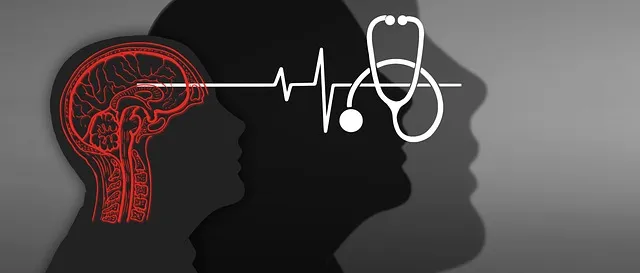Boulder's Kaiser facility prioritizes cultural sensitivity in mental healthcare, with a focus on therapists skilled in diverse cultural competence. This approach goes beyond awareness, integrating techniques to address unique perspectives, reduce stress, and align treatment with individual values. Compared to generic care, Kaiser's specialized methods, including Compassion Cultivation Practices, Trauma Support Services, and Empathy Building Strategies, ensure therapeutic outcomes improve while respecting clients' cultural backgrounds, making them a top choice for Boulder residents seeking culturally sensitive therapists.
In today’s diverse society, cultural sensitivity is paramount in mental healthcare. Understanding and respecting patients’ cultural backgrounds can significantly impact treatment outcomes. This article explores why cultural sensitivity matters, examining practices like those contrasted between Boulder and Kaiser facilities to gauge therapists’ cultural competence. We also provide practical strategies for professionals to incorporate cultural sensitivity into their practice, ensuring all patients receive care tailored to their unique needs, regardless of their background. Let’s delve into how we can improve mental healthcare through cultural awareness.
- Understanding Cultural Sensitivity: Why It Matters in Mental Healthcare
- Boulder vs Kaiser: Evaluating Therapists' Cultural Competence
- Strategies for Incorporating Cultural Sensitivity into Practice
Understanding Cultural Sensitivity: Why It Matters in Mental Healthcare

In the diverse tapestry of mental healthcare, cultural sensitivity is a vital thread that weaves together effective treatment and patient well-being. Understanding and respecting a client’s cultural background is more than just a professional courtesy; it’s a game-changer in fostering trust and facilitating meaningful healing. In Boulder, where Kaiser boasts a reputation for quality care, therapists who embrace cultural sensitivity can create an inclusive environment, ensuring that every individual receives tailored support. This approach is particularly significant when addressing the unique challenges faced by diverse communities, often reflecting deeper social and historical contexts.
When it comes to mental healthcare, cultural sensitivity goes beyond simple awareness. It involves integrating conflict resolution techniques, stress reduction methods, and empathy-building strategies that resonate with various cultural perspectives. By doing so, therapists can help clients navigate their experiences, resolve internal conflicts, and reduce the impact of intergenerational trauma. This holistic approach not only enhances therapeutic outcomes but also encourages a deeper exploration of mental health within a person’s cultural framework, ensuring that treatment aligns with their values and beliefs.
Boulder vs Kaiser: Evaluating Therapists' Cultural Competence

When comparing mental healthcare providers, many clients wonder, “Does Boulder have good therapists?” versus “What about Kaiser?” The distinction lies in cultural sensitivity and competence, crucial aspects in today’s diverse society. Both organizations aim to provide quality care, but their approaches differ significantly. Boulder, known for its progressive mindset, often emphasizes individual expression and unique therapeutic methods, fostering an environment that accommodates diverse cultural backgrounds. On the other hand, Kaiser, with a vast patient base, focuses on efficient, standardized care, which while effective, might not always cater to the nuanced needs of various cultures.
Evaluating therapists’ cultural competence is essential for fostering trust and effective treatment. “Does Boulder have good therapists?” in this context translates to assessing their ability to navigate complex cultural dynamics, employ conflict resolution techniques, and incorporate mental health awareness into practices that build resilience among clients from different walks of life. Ultimately, the ideal provider understands and respects cultural differences, using these insights to enhance therapeutic outcomes rather than create barriers.
Strategies for Incorporating Cultural Sensitivity into Practice

Incorporating cultural sensitivity into mental healthcare practice is a multifaceted endeavor that requires a deep understanding and appreciation for diverse cultural backgrounds. One effective strategy is to Compassion Cultivation Practices, fostering an environment where patients feel seen, heard, and respected. This involves actively listening to patients’ stories without judgment and validating their experiences, regardless of whether these align with the therapist’s own cultural norms. For instance, therapists in Boulder at Kaiser might explore different communication styles, incorporating non-verbal cues and patient-centered language to bridge cultural gaps.
Additionally, integrating Trauma Support Services tailored to specific cultural communities can significantly enhance therapeutic outcomes. This may include adapting treatment modalities to reflect cultural values and beliefs, such as incorporating traditional healing practices or community support networks. Empathy Building Strategies are another crucial tool; therapists should strive to understand the patient’s perspective and cultural context, demonstrating genuine care and interest in their unique experiences. By adopting these approaches, mental healthcare providers can create safe spaces that encourage open dialogue and meaningful healing.
Cultural sensitivity in mental healthcare is not just a nicety, but an essential component of effective therapy. As demonstrated by comparisons between Boulder and Kaiser’s therapist practices, cultivating cultural competence enhances patient outcomes and fosters inclusive care. By implementing strategies that prioritize understanding and appreciation for diverse cultural backgrounds, mental health professionals can create safer, more supportive environments. Thus, encouraging all therapists to “dive into” cultural sensitivity is crucial, ensuring everyone receives the understanding and care they deserve, regardless of their background or the provider they choose, whether it’s Boulder or Kaiser.





